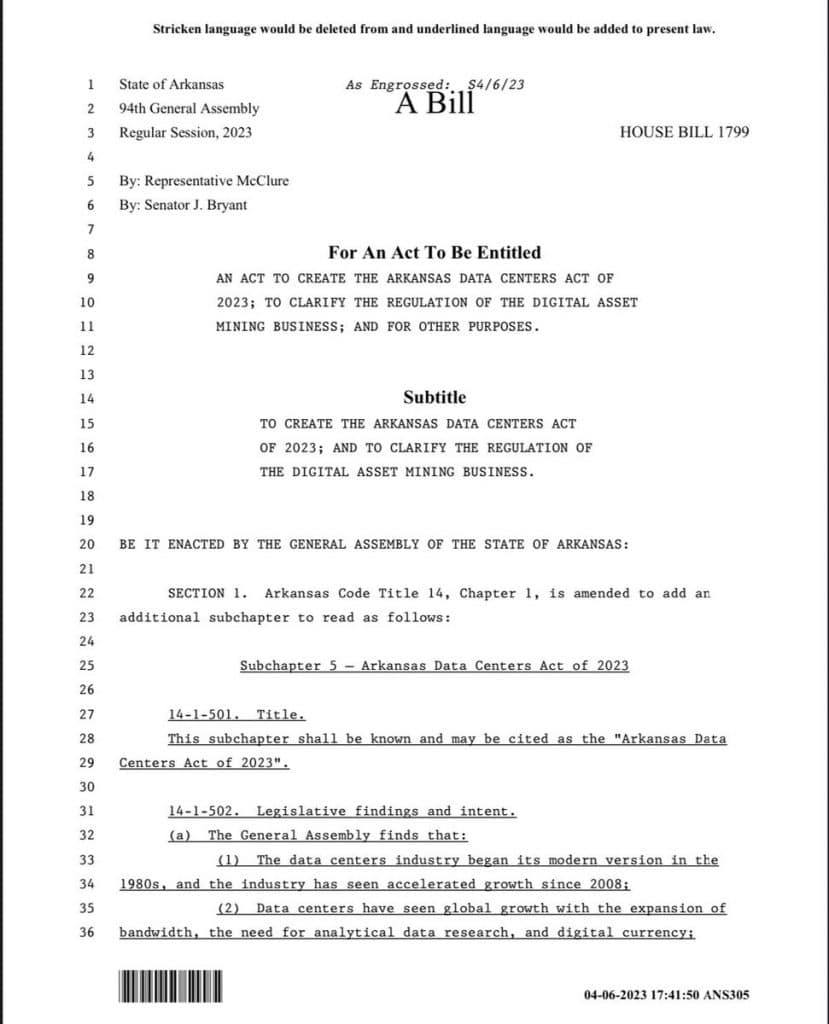
Arkansas Introduces a Bill to Protect Bitcoin Mining
- The bill aims to protect bitcoin miners and provide clarity in the regulation of digital assets.
- Arkansas is focused on protecting miners from discriminatory rates offered by energy companies.
The Arkansas State House has approved a bill to control the state’s Bitcoin mining industry. The bill, which has already been approved by the State Senate, will now wait to be endorsed by the governor. The Arkansas Data Centers Act of 2023 aims to stop unethical business activities by establishing regulations for bitcoin miners.
The bill suggests that a Bitcoin mining company can operate in Arkansas if it abides by all applicable state laws, including those governing business regulations and tax laws, operational and safety ordinances, utility service rules and rates set by or on behalf of public entities, and employment laws at both the state and federal levels.
The law also suggests that miners be obligated to operate in a way that does not put a strain on an electric public utility’s generation capacity or transmission network and to pay all necessary taxes and government fees in approved forms of currency. Additionally, the measure permits individuals to run home Bitcoin mining operations in accordance with appropriate utility rules and fees.
The purpose of the bill is to acknowledge that data centers benefit local communities and the state economically by generating jobs, paying taxes, and other services. It defines the rules required to shield Bitcoin miners from unfair industry-specific taxes and restrictions.

The proposed legislation defines different vital terminologies, including “digital asset,” which refers to Bitcoin and other cryptocurrencies. Additionally, it defines “digital asset miner” as a person who hunts for digital assets and “digital asset mining” as the process of running a computer on electricity in order to secure or validate a blockchain network.
The bill describes a “node” as a computing system that incorporates blockchain distributed ledger technology. The term “residence” is used in the bill to refer to a permanent home, apartment, etc. Interestingly, Arkansas’ “Right to Mine” bill was approved by Missouri earlier this month with a resounding 12-0 vote.
Additionally, Montana signed a similar protection on Bitcoin mining earlier this year. Texas also passed a similar. These legislative actions are unquestionably a good move given the uncertain regulatory landscape in the US.







